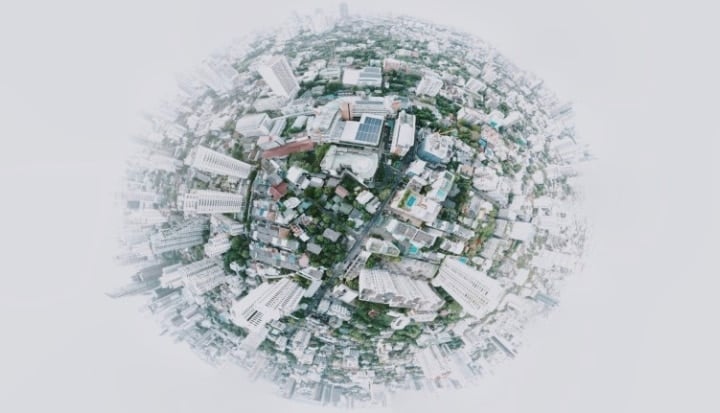Many people will be feeling uncertain, anxious and even scared. And of course, for others things have already reached crisis point. Like many other organisations, we at CISL have been working hard to support the welfare of our staff and students, whilst adjusting to a remote working model. We’ve also been focused on supporting our partners in business, government and civil society, as we all try to understand how this crisis will impact on development trajectories in both the short and long term.
If there is any solace to be had, it is that we are facing this unique moment in history together, 7.8 billion of us, going through the same experience at the same time, creating an unprecedented bond between us.
It is tempting to talk about getting ‘back to normal’, but we will almost certainly not go back to the way things were. In fact, going back to ‘normal’ is also not what many millions of people aspire to or deserve. For many, the current system has failed to deliver health, wellbeing, and prosperity. Now that the lack of resilience in the ‘old’ system has been revealed, alongside our ability to mobilise vast sums of money and resources when the economy is at risk, expectations will have been raised about what else is now possible in the face of other crises.
Globally, we have to take this moment to reflect on the need to change and transform our society; to explore lessons from the past and reset our expectations for the future. The shocks to the system that we are experiencing now, and anticipate in future, raise so many questions about the things that we have taken for granted, and demonstrate what is possible when we need to respond urgently. So this is a crucial time to be asking some big questions.
The way nation states govern, coordinate responses, and spend; the relationship between business, government and civil society; the relationship between globalisation and localism; the dominance of competition over cooperation; how and why we work and consume; our attitudes about what we value in society and how we relate to one another; what we need to let go of, and what new possibilities might open up. All these things are being challenged and disrupted. For some, this crisis will harden whatever views they previously held – but for others it will shape new possibilities and understanding. The reality is that our very way of life is likely to be profoundly changed for ever. This is an opportunity to shape the future, not just respond to it.
There are some principles that we can trust in and rely upon. For example, the laws of nature, the laws of physics, the inter-connectedness of human and natural systems, the emerging clarity about our interdependence and what we value as societies, and the importance of science to inform evidence-led decision making.
These fundamental principles remind us that what we are experiencing now, despite its magnitude, is a mere dress rehearsal for the system shocks that lie ahead, unleashed by climate change and ecosystem collapse, and – if left unaddressed – the potentially devastating impact on society.
The decade that we earmarked for getting our climate on track for net zero by 2050 and making progress on the UN Sustainable Development Goals (SDGs) will now play out in a new paradigm, where transformational change takes on wholly new possibilities. We can undoubtedly emerge as a stronger global community and more resilient society if we seize the opportunity of this crisis, of this wake-up call, to collectively chart a course towards the future we want.
CISL has for decades recognised the importance of taking a whole-system view and of creating spaces where complex narratives and evidence can be drawn together. Our role is, and has always been, to support leaders in business, government and society by enabling and supporting strategic and systemic thinking, as well as reflecting on the leadership we need and the economy we want. We believe that we can help people acquire the knowledge, skills and insights they need to navigate and lead in a changing world.
To this end, we will very shortly be announcing a new leadership platform – ‘The Future We Want’. This collaborative project will draw on the collective experience and wisdom of our global network of Fellows, Senior Associates, staff, students, academics and alumni to observe and interpret what has already changed, and to extrapolate that and test it against a vision of a sustainable future as set out in the SDGs, and our Rewiring the Economy framework. We will publish and share the best thinking from across the network and host a series of debates and discussions – all designed to help chart a new way forward.
Let me end with a quote, which has been in my mind over the past few weeks, and which I hope, like me, you will find inspirational in these exceptional times.
“I think there are good reasons for suggesting that the modern age has ended. Today, many things indicate that we are going through a transitional period, when it seems that something is on the way out and something else is painfully being born. It is as if something were crumbling, decaying, and exhausting itself, while something else, still indistinct, were arising from the rubble.” Vaclav Havel (1994)
Article previously published on the Cambridge Institute for Sustainability Leadership










